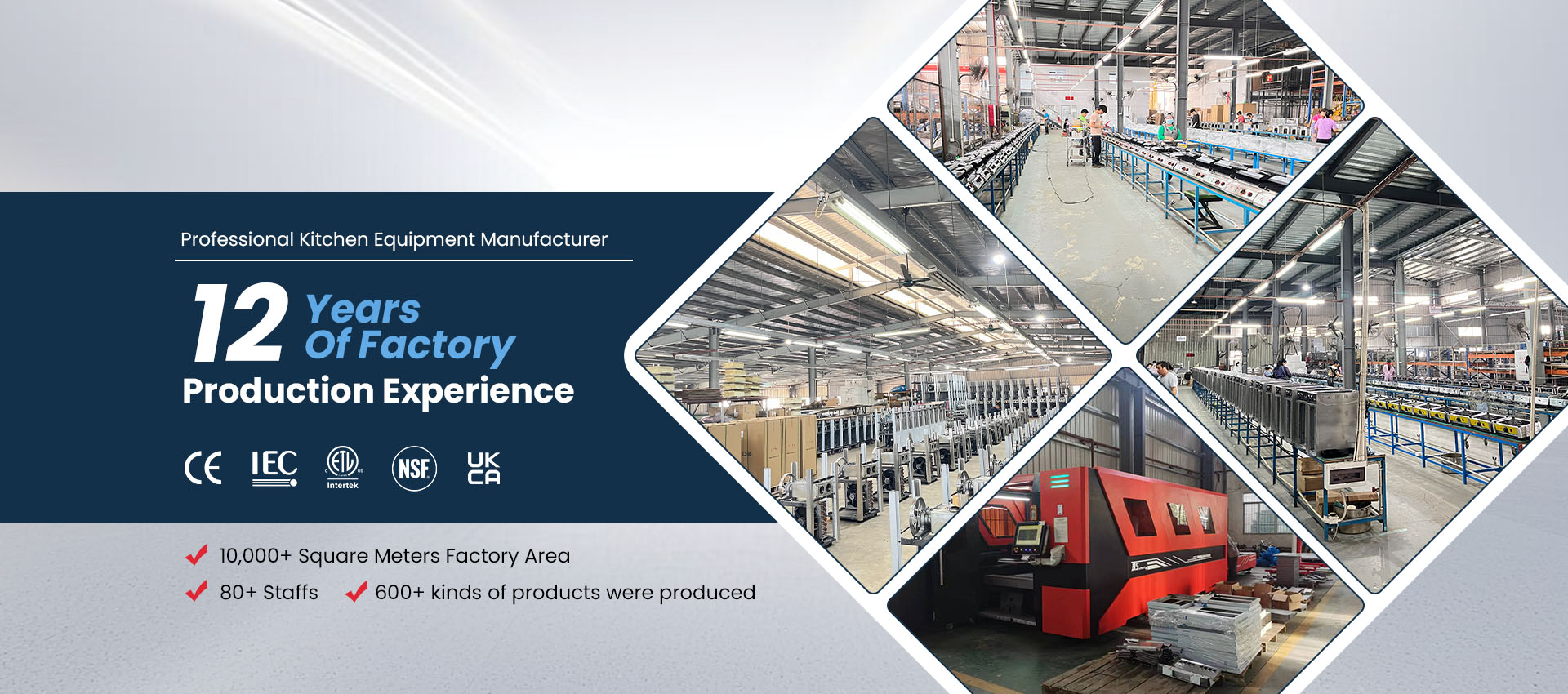Do All Gas Fryers Have A 3 4 Gas Line
When setting up a commercial kitchen or upgrading your cooking equipment, one of the most common technical questions is: “Do all Gas Fryers have a 3/4 gas line?” Understanding gas line sizes is crucial to ensure your fryer operates safely and efficiently. Not every fryer uses the same connection, but most commercial models are designed for 3/4-inch gas lines because of the gas flow they require for consistent heating.
In this article, we’ll explain how gas line sizing works, why 3/4-inch lines are standard, when other sizes might be needed, and how professional manufacturers like MLP Kitchen Equipment design their gas fryers to meet both performance and safety standards.
1. Understanding Gas Line Sizes for Fryers
The gas line size refers to the diameter of the pipe that delivers gas from the supply source to your fryer. The size determines how much gas can flow to the burners at once.
Smaller lines (1/2 inch) supply less gas, suitable for low-BTU appliances.
Larger lines (3/4 inch or 1 inch) allow higher gas flow, which is necessary for high-BTU fryers used in commercial kitchens.
The correct line size ensures the fryer receives enough fuel for stable heating without pressure drops or flame fluctuations.
2. Why 3/4-Inch Gas Lines Are the Industry Standard
Most commercial deep fryers require a 3/4-inch gas connection, and here’s why:
a. High BTU Requirement
Commercial fryers often operate between 90,000 and 150,000 BTU per hour. To support this, a 3/4-inch gas line provides sufficient gas flow to maintain steady burner performance even during peak cooking hours.
b. Consistent Temperature Control
The larger line prevents gas restriction, allowing burners to reheat oil quickly after food is added. This ensures uniform frying results and consistent cooking speed — critical for restaurants and fast-food kitchens.
c. Reduced Pressure Loss
With a wider diameter, the 3/4-inch line minimizes gas pressure drops across long piping runs, maintaining a stable flame for safer and more efficient operation.
d. Compatibility
Most commercial kitchen installations already use 3/4-inch regulators, valves, and couplings, making the connection process simple and standardized.
3. When Fryers Use Different Gas Line Sizes
While the 3/4-inch line is common, not all gas fryers require it. The proper size depends on the fryer’s design, BTU rating, and local building code requirements.
| Fryer Type | Typical BTU | Common Gas Line Size |
|---|---|---|
| Countertop Gas Fryer | 35,000 – 70,000 | 1/2 inch |
| Floor Standing Fryer | 90,000 – 150,000 | 3/4 inch |
| High-Capacity Double Fryer | 150,000 – 250,000 | 3/4 or 1 inch |
| Heavy-Duty Industrial Fryer | 250,000+ | 1 inch or larger |
Tip: Always check your fryer’s specification label or manufacturer’s manual before installation. Using an undersized line can cause low heat output and equipment failure.
4. Factors That Affect Gas Line Selection
Several variables determine the correct gas line size:
a. BTU Load
The higher the fryer’s total BTU rating, the more gas volume it needs. Combine all connected appliances to calculate your total gas load.
b. Line Length
Gas pressure decreases over distance. A longer pipe run requires a larger diameter to maintain the same pressure at the fryer.
c. Type of Gas
Natural gas systems typically need larger lines because they operate at lower pressure.
Propane (LPG) runs at higher pressure, allowing smaller lines for equivalent BTU output.
d. Local Regulations
Regional gas codes may specify the minimum pipe diameter, regulator type, and connector length for safety compliance.
5. Proper Installation for Optimal Performance
Installing a gas fryer isn’t just about connecting a pipe — it requires careful alignment, pressure regulation, and leak testing.
Use a licensed gas technician to handle installation.
Install a shutoff valve near the fryer for easy maintenance.
Include a flexible gas hose rated for commercial kitchen use.
Check gas pressure using a manometer before lighting burners.
Perform a leak test after connecting the gas line.
MLP Kitchen Equipment designs its fryers with easy-access gas inlets and robust safety valves, making installation faster and more secure for commercial users.
6. Maintenance Tips for Gas Fryer Connections
| Maintenance Task | Frequency | Purpose |
|---|---|---|
| Inspect gas hose for cracks | Monthly | Prevent leaks and hazards |
| Clean burner jets | Quarterly | Ensure steady flame performance |
| Check gas pressure | Every 6 months | Maintain heating efficiency |
| Tighten loose fittings | As needed | Prevent gas escape |
Keeping the gas line and connection clean and secure extends the fryer’s lifespan and maintains consistent cooking performance.
7. Why Choose MLP Kitchen Equipment Gas Fryers
MLP Kitchen Equipment, located in Jiangmen City, Guangdong Province, specializes in energy-efficient commercial cooking appliances, including gas fryers, griddles, and cooking ranges.
Key Advantages:
3/4-inch gas inlet standard across most models for easy compatibility.
High-efficiency burners designed for fast oil recovery.
Safety-certified valves and thermostats meeting CE and UL standards.
Customizable configurations (plug type, voltage, gas type) for international buyers.
OEM/ODM service for brand and packaging customization.
By combining durable stainless-steel construction and advanced heat control systems, MLP Kitchen Equipment gas fryers deliver performance and reliability suited for restaurants, cafes, and catering services worldwide.
8. Conclusion
Not all gas fryers use a 3/4-inch gas line — but most commercial models do because they require higher BTU flow to maintain stable oil temperature and fast recovery times. Smaller countertop fryers may use 1/2-inch lines, while industrial units might need 1-inch or larger connections.
To ensure safe, efficient operation, always match the fryer’s gas requirements with the correct line size and follow local installation codes.
For dependable, high-performance equipment, MLP Kitchen Equipment offers gas fryers built to global standards, with precise gas connections, durable materials, and easy maintenance — the smart choice for any professional kitchen setup.



